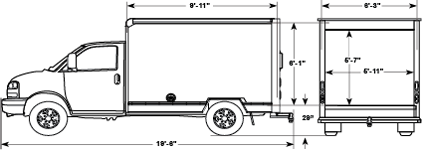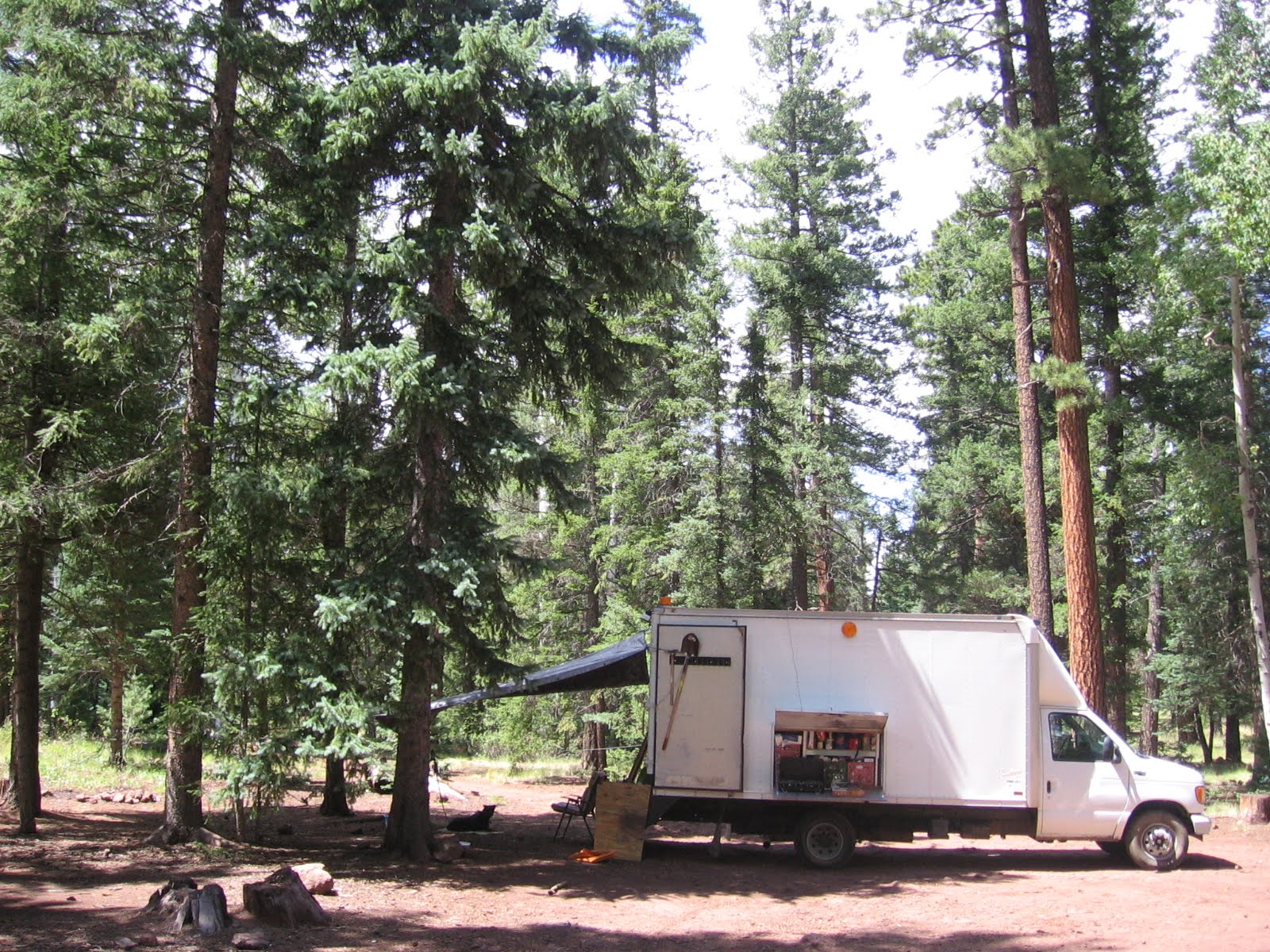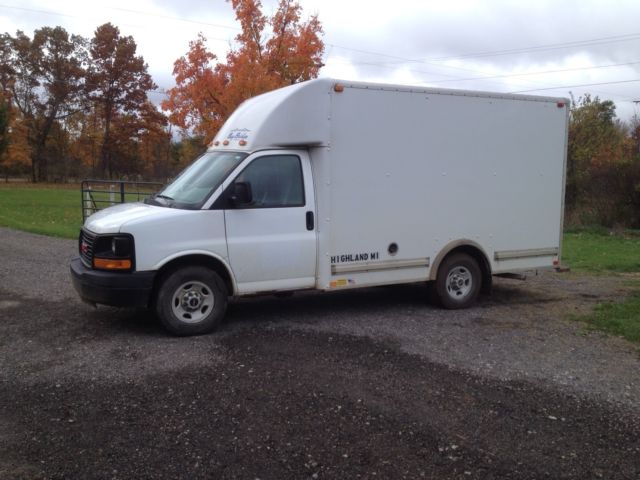Hi everyone,
I am currently in the planning stage for what vehicle to buy for a full time traveling home (it will still be at least a couple of years until I have saved up enough money, though - so plenty of time to plan it right!). A 14ft box truck is looking to be the best option for me because they are relatively cheap, widely available, have great space and headroom, and are easy to build out due to the flat walls. However, if having a box truck will seriously limit the extent of my boondocking adventures then I will need to carefully reconsider. The main reason I want to live in a vehicle is to spend as much time out in nature as I can.
I don't intend to go on any crazy off-road excursion, but would like to ideally be able to get to the same locations that a smaller van would be able to access. Honestly, I have never actually driven outside of a city before, so I don't really know what to expect from BLM and National Forest unpaved roads.
In Bob's e-book he rates a box truck's back-road ability as "poor" (no further details given) in comparison to a full-sized van being "fairly good". Despite this, from what I can tell, they seem to have as good, if not better, ground clearance as most non-lifted cargo vans. The wheelbase and rear wheel to rear bumper overhang distance do not appear to be that much greater than that of an extended cargo van. Obviously, weight is a big difference. An extended cargo van is typically 5000 to 6000 lbs empty whilst a 14ft box truck weighs 7,860 lbs empty. Presumably the added load for full-time living is roughly similar for each. So does this 2000-3000 lbs disparity really make that much of a difference?
Also, 14ft box trucks have duel rear wheels. Will this help or hinder rough road ability?
I do intend to put on mud tires/ off-road tires, lower the tire pressure when on rough patches, and keep a heavy duty come-along winch with me. I will also take considerations when building to put heavy objects near the floor to keep the center of gravity low as possible.
With all this in mind, how well will a 14ft box truck fare on rough back roads compared to full-size 2WD cargo vans that seem popular here? Would a 10ft box van (with slightly shorter wheelbase and back end overhang and lower weight) be noticeably better? What about a Class B (ie lower ground clearance but lighter)?
Thanks,
Bonobo
14ft Uhaul box truck dimensions:

Empty weight: 7,860 lbs
10ft Uhaul box truck dimensions:

Empty weight: 5,790 lbs
I am currently in the planning stage for what vehicle to buy for a full time traveling home (it will still be at least a couple of years until I have saved up enough money, though - so plenty of time to plan it right!). A 14ft box truck is looking to be the best option for me because they are relatively cheap, widely available, have great space and headroom, and are easy to build out due to the flat walls. However, if having a box truck will seriously limit the extent of my boondocking adventures then I will need to carefully reconsider. The main reason I want to live in a vehicle is to spend as much time out in nature as I can.
I don't intend to go on any crazy off-road excursion, but would like to ideally be able to get to the same locations that a smaller van would be able to access. Honestly, I have never actually driven outside of a city before, so I don't really know what to expect from BLM and National Forest unpaved roads.
In Bob's e-book he rates a box truck's back-road ability as "poor" (no further details given) in comparison to a full-sized van being "fairly good". Despite this, from what I can tell, they seem to have as good, if not better, ground clearance as most non-lifted cargo vans. The wheelbase and rear wheel to rear bumper overhang distance do not appear to be that much greater than that of an extended cargo van. Obviously, weight is a big difference. An extended cargo van is typically 5000 to 6000 lbs empty whilst a 14ft box truck weighs 7,860 lbs empty. Presumably the added load for full-time living is roughly similar for each. So does this 2000-3000 lbs disparity really make that much of a difference?
Also, 14ft box trucks have duel rear wheels. Will this help or hinder rough road ability?
I do intend to put on mud tires/ off-road tires, lower the tire pressure when on rough patches, and keep a heavy duty come-along winch with me. I will also take considerations when building to put heavy objects near the floor to keep the center of gravity low as possible.
With all this in mind, how well will a 14ft box truck fare on rough back roads compared to full-size 2WD cargo vans that seem popular here? Would a 10ft box van (with slightly shorter wheelbase and back end overhang and lower weight) be noticeably better? What about a Class B (ie lower ground clearance but lighter)?
Thanks,
Bonobo
14ft Uhaul box truck dimensions:

Empty weight: 7,860 lbs
10ft Uhaul box truck dimensions:

Empty weight: 5,790 lbs







